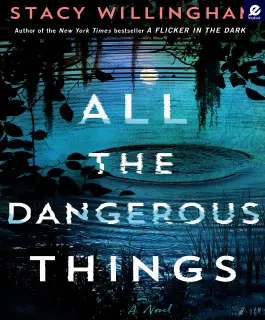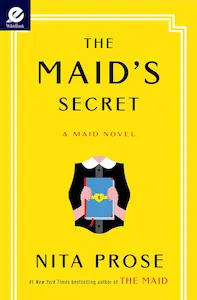Yellowface - R.F. Kuang
THE NIGHT I WATCH ATHENA LIU DIE, WE’RE CELEBRATING HER TV
deal with Netflix.
Off the bat, for this story to make sense, you should know
two things about Athena:
First, she has everything: a multibook deal straight out of
college at a major publishing house, an MFA from the one
writing workshop everyone’s heard of, a résumé of prestigious
artist residencies, and a history of awards nominations longer
than my grocery list. At twenty-seven, she’s published three
novels, each one a successively bigger hit. For Athena, the
Netflix deal was not a life-changing event, just another feather
in her cap, one of the side perks of the road to literary stardom
she’s been hurtling down since graduation.
Second, perhaps as a consequence of the first, she has
almost no friends. Writers our age—young, ambitious up-and-
comers just this side of thirty—tend to run in packs. You’ll
find evidence of cliques all over social media—writers
gushing over excerpts of one another’s unpublished
manuscripts (LOSING MY HEAD OVER THIS WIP!), squealing over
cover reveals (THIS IS SO GORGEOUS I WILL DIE!!!), and posting
selfies of group hangs at literary meet-ups across the globe.
But Athena’s Instagram photos feature no one else. She
regularly tweets career updates and quirky jokes to her seventy
thousand followers, but she rarely @s other people. She
doesn’t name-drop, doesn’t blurb or recommend her
colleagues’ books, and doesn’t publicly rub shoulders in that
ostentatious, desperate way early career writers do. In the
entire time I’ve known her, I’ve never heard her reference any
close friends but me.
I used to think that she was simply aloof. Athena is so
stupidly, ridiculously successful that it makes sense she
wouldn’t want to mingle with mere mortals. Athena,
presumably, chats exclusively with blue check holders and
fellow bestselling authors who can entertain her with their
rarefied observations on modern society. Athena doesn’t have
time to make friends with proletarians.
But in recent years, I’ve developed another theory, which
is that everyone else finds her as unbearable as I do. It’s hard,
after all, to be friends with someone who outshines you at
every turn. Probably no one else can stand Athena because
they can’t stand constantly failing to measure up to her.
Probably I’m here because I’m just that pathetic.
So that night it’s only Athena and me at a loud, overpriced
rooftop bar in Georgetown. She’s flinging back cocktails like
she has a duty to prove she’s having a good time, and I’m
drinking to dull the bitch in me that wishes she were dead.
ATHENA AND I ONLY BECAME FRIENDS BY CIRCUMSTANCE. WE
LIVED on the same floor at Yale our freshman year, and
because we’ve both known we wanted to be writers since we
were sentient, we ended up in all the same undergraduate
writing seminars. We both published short stories in the same
literary magazines early on in our careers and, a few years
after graduation, moved to the same city—Athena for a
prestigious fellowship at Georgetown, whose faculty,
according to rumor, were so impressed by a guest lecture she
gave at American University that its English department
inaugurated a creative writing post just for her, and I because
my mother’s cousin owned a condo in Rosslyn that she would
rent to me for the cost of utilities if I remembered to water her
plants. We’d never experienced anything like kindred spirit
recognition, or some deep, bonding trauma—we were just
always in the same place, doing the same things, so it was
convenient to be friendly.











